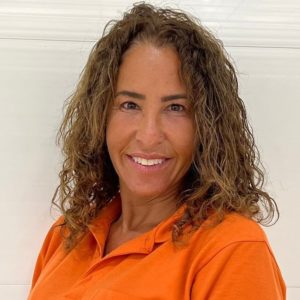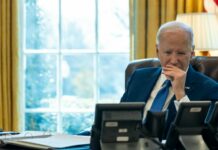Gaby Hilkowitz Rurka | Special to JT

There is a great deal of emotional and psychological trauma currently in Puerto Rico. Much of it dates back to Hurricane Maria, which took place in 2017, when large parts of the island were devastated by the storm. On my recent mission as part of United Hatzalah’s Psychotrauma and Crisis Response Unit’s delegation following Hurricane Fiona two weeks ago, I saw just how much those old emotional injuries are still unhealed. They were exacerbated by Fiona, which while less intense than Maria was still devastating and left large portions of the population without electricity or water for lengthy periods of time. In some places on the island, power still has not been restored.
I left Israel a week ago with fellow unit members. Our unit provides psychological first aid for people suffering from mental or emotional stress after and/or during traumatic events. From the people I have met here, I have learned a lot, and I believe it was the correct decision for me, even though it meant leaving my own children back in Israel.
One of the interactions that struck me the most was when I met an 8-year-old boy named “Jack.” I was with another social worker, Avishai Levkovitz, and a local volunteer, Luis Vasquez, who came along to translate and provide some medical coverage if needed. We approached one of the houses in the municipality of Añasco, where we were working that day. My first assumption was that Jack was on the spectrum because of his lack of eye contact and oddly shy behavior. He had been sitting to the side of the room by himself, interacting with no one when we came. I couldn’t quite distinguish the cause of why he was not connecting with me, but when Avishai came, Jack perked up. Avishai calmed Jack down and started therapy exercises with him. Meanwhile, I took aside Jack’s mother to explain to her what exercises Avishai was doing, and how they could help Jack express his feelings and deal with his emotional trauma.
Suddenly, Jack was a different boy. He started talking to those around him, and interacting with Avishai and others. He began to feel safe once again, which, according to his mother, he hadn’t felt since the storm hit. His mother was overjoyed and said she hadn’t seen him smile since before the storm. She became very emotional, so Avishai went to talk to her for a few minutes. By doing so, he missed something I’ll never forget—Jack jumped up with the biggest smile on his face, ran towards his aunties, and began to hug each and every one of them. It melted my heart to see the joy that this child was able to experience so quickly after being shut down for so long. I learned an important lesson as well—that I shouldn’t judge anyone from a negative initial interaction. It seemed that Jack needed a male person to connect to, and Avishai was the right person in the right place at the right time.
In Loiza, another municipality we were sent to in order to assist, I had a 20-minute session with a number of children. I asked them how they felt when the storm hit and whether they did anything at the time. One of the children in the group said he tried to push up the water so that it wouldn’t damage his home. Another child said he played with his younger brother to distract him so that he wouldn’t be scared. I encouraged the children to share these stories so that they could learn for themselves that they were not completely helpless even in the face of devastating floodwaters all around them. I encouraged them to see that they did little things to exert control and help others.
They told me their fears. Most of the children expressed that they are afraid at night and anytime it rains or when the wind blows. These are very understandable after having lived through not one, but two devastating hurricanes. I thanked them for sharing that and worked with them to give them tools that even they, at a young age, could use to alleviate fear. I handed out straws and started practicing breathing exercises with them, doing it in a simple and silly fashion which they loved. This exercise helps calm the body and mind; I told them that whenever they feel afraid, they should practice their breathing techniques and talk to their parents about what they feel to help them calm down. Another exercise was one for body relaxation. It was lovely to see the kids helping and stabilizing themselves and each other. Toward the end of the session, I recognized just how much of an impact I had made when some of them opened up to me and came to sit on my lap. I received hugs from a few. I noticed one of the kids throughout the session did not look at me and sat very far away. But as the session went on, he kept moving closer and closer as I earned his trust. In the end, he sat very close to me and began participating with all the others.
It was beautiful to see some of the changes we made. The entire team worked well together and with the people of Puerto Rico, and I think we did a lot of good. On a personal note, I feel exhausted and uplifted, and as our mission comes to a close, I feel more than ready for the next one, even though I hope that there won’t be a need for it anytime soon.
Gaby Hilkowitz Rurka is a social worker who works with children and youth at risk. She has been volunteering in the Psychotrauma and Crisis Response Unit with United Hatzalah in Israel for the past five years.






